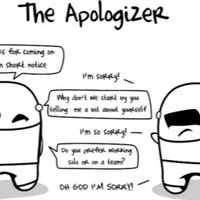Elizabeth “Beth” March typ osobowości MBTI
Osobowość
"Jaki typ osobowości jest {profilename}? {profilename} jest typem osobowości {mbti} w mbti, {enneagram} - {iv} - {tritype} w enneagram, {big5} w Big 5, {sociionics} in Socionics."
I saw a video once talking about how Fe and Fi look different in comforting people, using Meg and Beth respectively as an example with Jo after Amy burned her book. In the scene, Meg is leaning over, offering comfort, while Beth is there for Jo to lean on. The difference is Meg is going outside of herself, physically reaching out, offering her touch and kindness while Beth is there as she is, allowing Jo to cry it out, acting more as a companion through her individual struggles. I thought that was an interesting insight in the argument that she's an Fi user (INFP specifically). However, beyond that example, I'm not sure I really see any other Fi usage. We can see that she values the comfort and harmony of her family -- that's one of her most clearly defined traits. I guess that could look like Fi's internal, personal values, but it seems a lot more like Fe's desire for social harmony. If she were leading with Fi, she'd think first of herself, prioritizing what she wants. Other people's comfort would come after. She'd be more focused on being personally authentic to herself which contradicts her way of filling in where she's needed, emphasizing that extroverted harmony. In the way she interacts with people and the world, she seems to ask first about others and the group dynamic before considering herself. She definitely has high Si, we can see that in the way she absorbs and processes information. She's very in tune with things being the way that they are, leaning into the routine, established approach. If she had auxiliary Ne like an INFP, she'd be exploring opportunities and potential to aid her personal Fi desires. We really see none of that, and I don't think it's because of an Fi-Si loop. If she were looping and blind to her Ne, she'd be using her understanding of past precedent and previously stored stimuli to make sense of her internalized Fi struggles. She'd be blocking out new stimuli and information to give herself a more rounded out perspective. That just doesn't seem to make much sense because her Si use seems healthy. Maybe she's staying where she's more comfortable with routine and a system that's proven to work, but that seems like Si dominance with Ne in the inferior position -- not being blinded by an Fi-Si loop. New ideas and opportunities really aren't a priority for her, not over established systems. I can't see Ne being higher up in her stack than Si, and I doubt she has auxiliary Si because then she'd be leading with an extroverted judging function that would give her a less subtle presence. My coming to the conclusion of ISFJ honestly relies more on her Si > Ne, and less over determining Fe > Fi or Fi > Fe. If considering her high Si usage, Fi would have to be either tertiary (ISTJ) or inferior (ESTJ), and I really don't think she uses strong Te. Her Si just seems too developed to be surpassed by Ne and winding up tertiary. I understand why one would consider an Fi-Si loop but breaking out of that and using Fi-Ne doesn't make much sense for Beth. Si dominance and auxiliary Fe makes the most sense to me.
Biografia
#ElizaScanlen as Beth March
Osobowość correlate

Amy March

Josephine “Jo” March

Margaret “Meg” March

Theodore “Laurie” Laurence

Friedrich Bhaer

Margaret “Marmee” March

Aunt March

John Brooke















